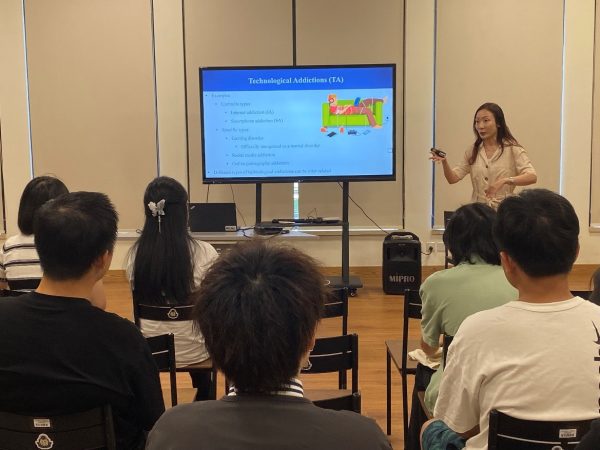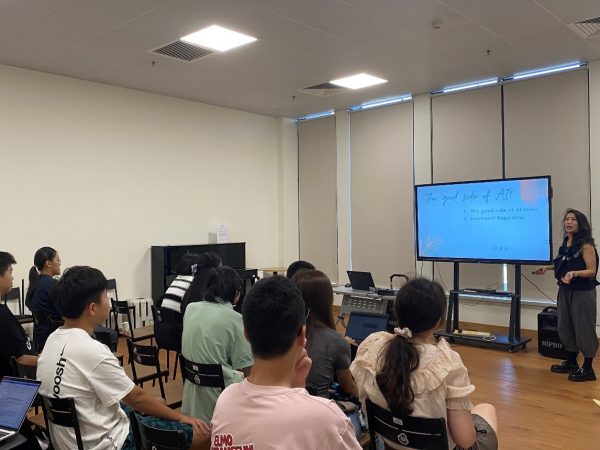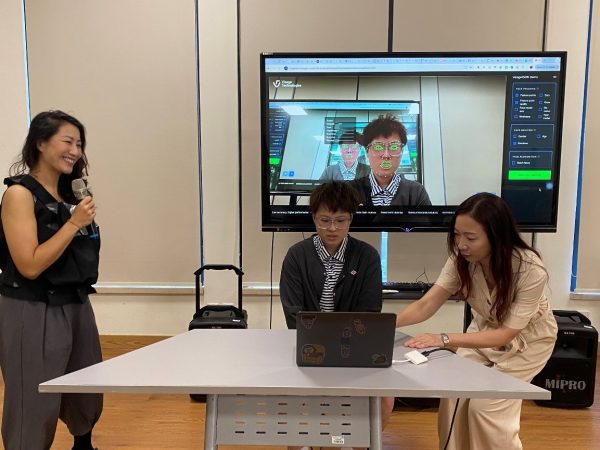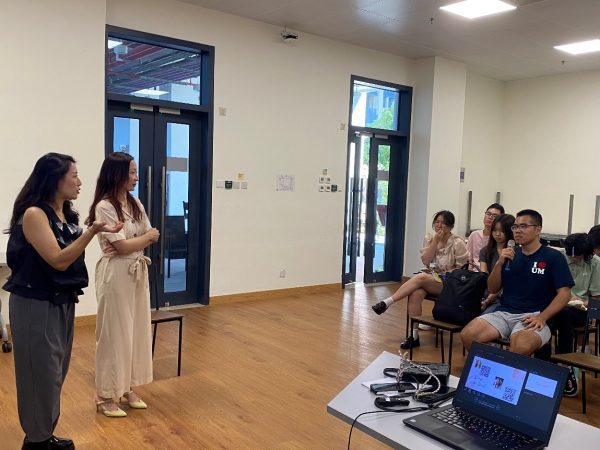MCM College: UM Mental Health Awareness Month-“Technological Use, Addiction and Emotional Regulation” Psychoeducation Talk
滿珍紀念書院: 澳大心理健康推廣月系列活動 - 「科技使用、成癮與情緒調節」心理教育講座

On 7th October 2024, Moon Chun Memorial College, University of Macau was delighted to invite college affiliates, Profs. Anise Wu and Letty Kwan, Faculty of Social Sciences (FSS) to deliver a psychoeducation talk on technological use, addiction and emotional regulation.
Prof. Wu introduced the definition and different types of technological addiction, using smartphone addiction as an example. She pointed out that there is a high prevalence and vulnerability of smartphone addiction among youths. Smartphone is used as a means of coping with negative emotions such as loneliness, anxiety, fear depression and stress. She explained from a scientific perspective how empirical research emphasizes the role of negative emotions in technological use and addiction.
Meanwhile, Dr. Kwan emphasized the importance of emotional regulation as it is related to mental health, interpersonal relationships, decision making, school performance and resilience. Therefore, she introduced some practical methods to increase self-awareness of emotions, including self-reflection on one’s emotion and journaling. Her research result indicated that AI face-reading is a useful tool that can assist students in better manage their emotions.















2024年10月7日,澳門大學滿珍紀念書院很高興邀請到兩位來自社會科學學院(FSS)的非駐院教員,胡文詩教授和關欣儀教授舉辦有關科技使用、成癮與情緒調節的心理教育講座。
胡教授介紹了科技成癮的定義和不同類型,以手機成癮為例。她指出,青少年中手機成癮的普遍性和脆弱性很高。手機被用作應對孤獨、焦慮、恐懼、抑鬱和壓力等負面情緒的方法。她從科學角度解釋了實證研究如何強調負面情緒在科技使用和成癮中的作用。
與此同時,關教授強調了情緒調節的重要性,因為它與心理健康、人際關係、決策、學業表現和韌性有關。因此,她介紹了一些增加情緒自我察覺的實用方法,包括自我反思和寫日記。她的研究結果顯示,AI面部識別是一種有助於學生更好調節情緒的有用工具。











